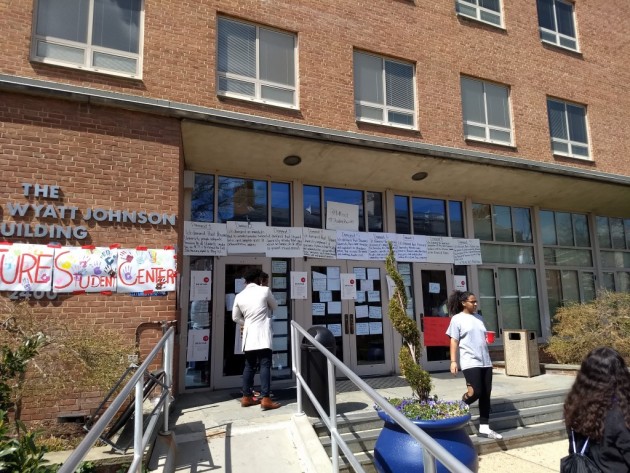24/7/365 leaves audiences with food for thought
What does it take to be happy nowadays? Jennifer L. Nelson’s play “24,7,365,” seeks to answer that age-old question with witty banter, impressive performances, and a powerful message. “24,7,365,” is a comedy about a social worker named Johnnie played by actress Deidra Starnes and the lives and relationships of four Washingtonians (D.C. to be exact) in their struggles to find happiness. Johnnie is responsible and committed to her work, but she’s still looking for something in her life that will satisfy her need to make a difference. The show started promptly at 8:00 pm at the Atlas Performing Arts Center, on H Street NE opening with an anxious Johnnie asking the audience how it would it feel to be satisfied all the time.
The play begins in midst of a camping trip/birthday celebration, arranged by Johnnie’s geologist husband, Jan played by Michael Kramer with Johnnie’s brother Beaufort Tyler (Craig Wallace) and his rambunctious, significantly younger girlfriend Shavondra (Fatima Quander) trying to enjoy all that the West Virginia campsite has to offer including drinking, tree climbing, loss of cell phones, and of course, mosquito bites.
While these are some of the funnier elements of the play, “24, 7,365” explores the age-old question of understanding what makes a person happy and what is satisfying to one may not be to others. Jan’s Danish sensibilities mixed with his more laidback views on happiness contrast with Johnnie’s desire to want to be in control over her clients’ lives. Beau himself is looking for some answers, seeking to find meaning in his career, examining his relationships with his family, and his attraction to Shavondra.
After Shavondra accidently drops her coveted cell phone in the outhouse, she convinces Beau to replace it immediately and the two drive off, not planning on coming back. After narrowly avoiding a head-on collision, Beau has an epiphany and decides to become more committed and appreciative. Meanwhile, after spending some time with her husband, Johnnie decides to leave in the middle of the night and check on some of her clients.
As the play continues, the reasons behind some of the sadness in Johnnie’s life come from the medical condition that took away her ability to give birth. Johnnie works tirelessly at her job to help women affected by domestic abuse and protect them from their often hostile husbands and boyfriends. Naturally, it comes as a surprise to Johnnie to find Kwame (Baye Harrell), the husband of Johnnie’s client and accused abuser, sitting in her kitchen eating a sandwich. After a tense conversation, Kwame ends up driving Johnnie back to the camp site to get Jan out of the tree. We learn that there is more to Kwame than what is on the surface as the struggling DJ/poet rapped conscious messages of social activism and relationships.
The props were used to effectively in making the setting feel realistic. The characters would transition from the campsite to the car, and to the Tyler’s home, all the while occupying the same stage space. The layout of the campsite looked realistic, especially using a large tent that saw its construction finished with the arrival of Kwame on the scene.
Some of the issues explored in the play include how race and class affect relationships, defining happiness for oneself, and the idea that money doesn’t guarantee happiness. “24, 7,365” should be seen based off the comedy and the topics explored in the play. It was entertaining while engaging, leaving the audience with much food for thought.

